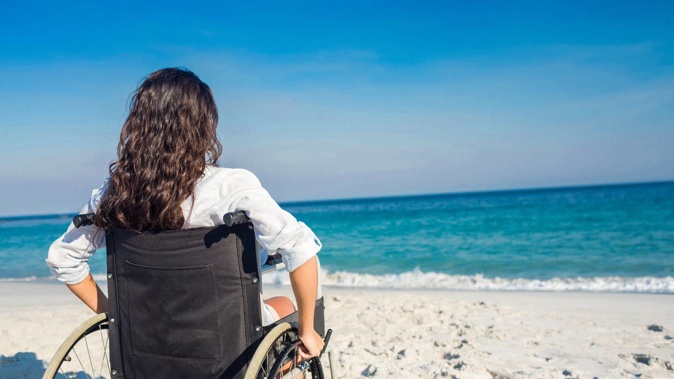
The Government is creating a Ministry for Disabled People to bring together a fragmented system and empower the disabled when it comes to how the state can improve their lives.
It is being hailed as a significant move, creating a national approach to supporting 1.1 million disabled people, and built on the principle of "nothing about us without us".
"Today's announcements mark a new era for us," said Disability Rights Commissioner Paula Tesoriero.
"I'm optimistic about the platform for change these announcements create."
The changes were announced today by Minister for Disability Issues Carmel Sepuloni and Health Minister Andrew Little at a virtual event, hosted by Attitude TV.
/cloudfront-ap-southeast-2.images.arcpublishing.com/nzme/IKESVDG6N2NWGKQRBW3BUWDYFY.jpg)
A Cabinet paper described the current system as "fragmented, slow, hard to measure, and hasn't led to the credible policy, system design and service delivery needed to achieve an accessible society".
This was evident, for example, in last year's level 4 lockdown, which saw a "lack of timely accessible information or access to PPE".
The new ministry will be responsible for a cross-government approach to address inequities and improve access to housing, transport, information, and public buildings and spaces.
It will be hosted by the Ministry of Social Development, have its own chief executive, and have its own board that will be led by and include disabled people.
The Enabling Good Lives strategy - developed in 2011 by the disability community to, among others, increase autonomy and social connectedness - will become a national approach, which the community has been calling for.
This will mean more disabled people will be able to access support through a personal budget because it will be available nationally, giving them flexibility on what to spend it on as long as it meets the criteria.
The scale and pace of this change will be determined by available funding.
New legislation - Accessibility for New Zealanders Bill - will also be introduced later this year.
It will outline the roles and purposes in the new ministry, establish monitoring and evaluation mechanisms, and create expectations of engaging with stakeholders, including Māori and Pasifika, who are disproportionately represented in the disabled population.
The goal is to have the new ministry established by July 1 next year.
The estimated costs of establishing it and the ongoing additional operating costs are $85 million over four years: $28.4m for the former and $56.6m for the latter.
/cloudfront-ap-southeast-2.images.arcpublishing.com/nzme/QJTTBCN5VBH3VSS3U43CSE5VYI.jpg)
Tesoriero said a smooth transition of Disability Support Services, which helps 43,000 disabled people and their whānau, to the new entity was vital.
"It's also important, that other government agencies don't decrease any focus on disabled people," she said.
"This ministry won't succeed without disabled peoples' leadership - and disabled people as employees and decision-makers during the transition and in its ongoing development."
Sepuloni said the disabled community's voices will be embedded at all levels of decision-making, from the formation and running of the ministry, to the development of the legislation.
"I firmly believe the changes announced today epitomise a bold and truly transformative way forward for disabled people and their whānau to thrive.
"They send a very clear signal that there needs to be an ongoing commitment over successive Governments in order to sustain better outcomes for disabled people."
One of the risks identified in the Cabinet paper was having the new ministry hosted by MSD.
"MSD has many competing claims for its resources and a number of ambitious work programmes to deliver on, such as welfare overhaul. Supporting the new ministry to deliver disability system transformation will need to be considered against other ministerial and organisational priorities, which may affect the speed and scope of transformation.
"MSD's own IT systems are ageing and previous shared services arrangements, such as with Oranga Tamariki, have not been without challenges.
"The above risks will need to be carefully managed as the new ministry is established."
Take your Radio, Podcasts and Music with you









